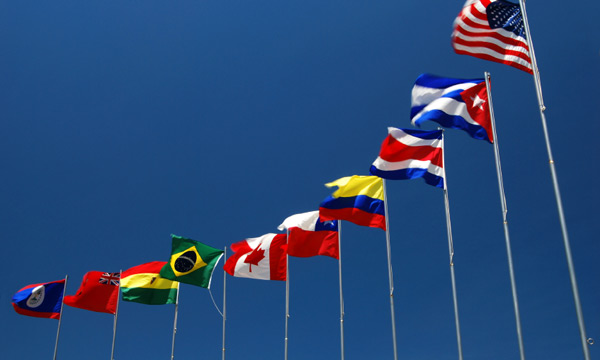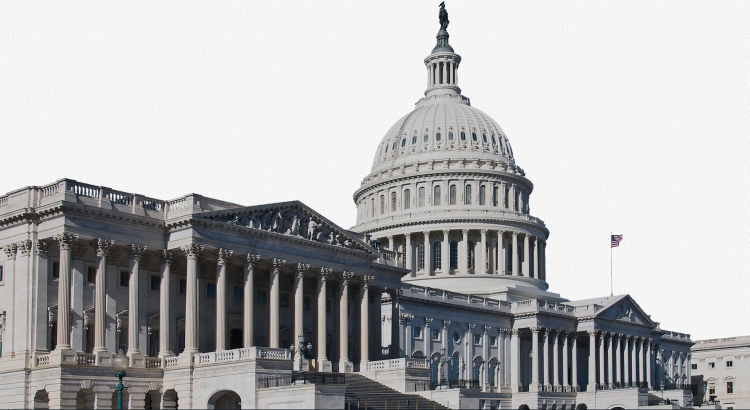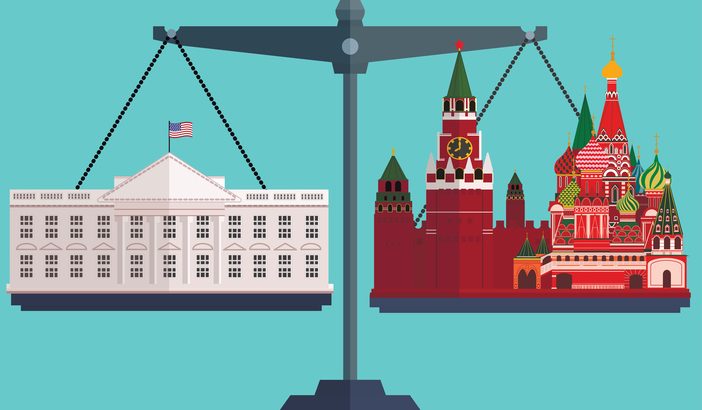“The truth is that even with the most precise weaponry, restrictive rules of engagement, and meticulous adherence to international law, it’s inevitable that more civilians are going to be killed if ISIS is going to be ousted from Mosul and put on the path of complete destruction,” writes law professor Charlie Dunlap. “It’s a grim reminder that there is no such thing as immaculate war if evil is going to be stopped. Let’s have the fortitude to see the mission through even as we grieve the cost.”
Read More in LawfireCategory: Global

Why Hate Crimes Are A National Security Risk
Hate crimes deserve the new administration’s attention, and not only because they are abhorrent, says David Schanzer, associate professor of the praactice at the Sanford School of Public Policy. Anti-Muslim hate crimes and bigotry also threaten our national security, says Schanzer, who also directs the Triangle Center on Terrorism and Homeland Security.
Listen on the Glad You Asked Podcast
Duke Engineering Dean Discusses Confronting, Overcoming Biases
Duke’s Pratt School of Engineering Dean Ravi Bellamkonda explains why diverse university settings can be an important catalyst in helping society confront and overcome biases. He says we have perceptions of what “other” is – Africa, Asia, gay, straight, etc. “These perceptions are fueled, increasingly, in bubbles in social media and reinforce any bias you have. But there’s no better way to take these on, to actually meet someone (than when you are) at a global university like Duke,” he says.
Watch on Duke Today
Trump’s War On Terror Similar To Obama’s
“President Donald Trump’s approach to combating terrorism looks a lot like President Barack Obama’s. It is heavy on the use of special operations raids and American airpower, but it relies primarily on indigenous forces to provide the bulk of the ground forces. To be sure, it is not a carbon copy. It is more open to risk,” writes political scientist Peter Feaver.
Read More in Foreign Policy
Language and Cultural Studies Contribute to National Security — Really
“As the Trump administration promotes its recommendations for upgrading the U.S. military, it is essential that Congress and the executive branch not sacrifice other programs which contribute to our national security. For example, language and culture programs administered by the Department of Education, known as Title VI centers, are among the most important, cost-effective and vulnerable in the current political environment,” writes Patrick Duddy, a former ambassador to Venezuela now director of Duke University’s Center for Latin American and Caribbean Studies.

ISIS Is Winning The Cyber War; Here’s How To Stop It
“To defeat ISIS, we need an entirely new strategy, one that takes on ISIS where it is highly effective — in cyberspace. While ISIS continues to foment regional instability in the greater Middle East, its prowess online has made it a threat to Western nations as well. ISIS focuses significant resources on cyberspace, where it has a global presence, using sophisticated techniques to electronically communicate with its far-flung sympathizers, spread its propaganda and recruit operatives around the world,” writes historian Andrew Byers and a colleague.
Read More in The Hill

‘Benghazi on Steroids’ Russia Investigation Needs Independent Commission
“The congressional hearings have only just begun, but I think it is time to predict one likely outcome: Sooner or later, Congress and the Trump administration will agree to some sort of blue-ribbon independent commission, patterned on the 9/11 Commission, to investigate the issue of Russian interference in the 2016 election,” writes political scientist Peter Feaver.
Read More at Foreign Policy
FBI Director Confirms Investigation Into Trump-Russia Ties
During a House Intelligence Committee hearing, FBI director James Comey confirmed the agency is investigating Russian interference in the 2016 presidential election, as well as possible coordination between Donald Trump’s campaign and Russian officials. Comey also acknowledged that he had “no information” that would support claims made by President Trump that he had been wiretapped by former president Barack Obama. Foreign policy expert Bruce Jentleson breaks down the hearing.
Listen on Wisconsin Public Radio

What Do Everyday Russians Think of Trump?
“The upshot is that Russians react to hacking claims as more of the same — as more insults, more demonizing. That’s because there are so many accusations. It’s really become impossible to sort out the kind of messiness so that one can be convincing, and the demonization, as they call it, just leaves them to reject wholesale any complaint the United States might have,” says Ellen Mickiewicz, professor emeritus of public policy. “Do they think there’s hacking? They think there’s no privacy, period.”
Read More in Vox
Was The Trans-Pacific Partnership Bad For The U.S.?
“President Trump’s knee-jerk nativism has blocked progress due to fear of change. Nations that turn inward and reject trade harm themselves and the world,” writes economics professor Edward Tower. “On the other hand, globalization since World War II shows that nations that open markets and embrace agreements such as the TPP strengthen their economies and spread wealth and liberty to more people around the world.”
Read More on Wallet Hub
North Korea Crisis, Erdogan’s Power Grab, State Dept. Budget Cuts
This week on the podcast “On Security,” public policy professor David Schanzer discusses the growing threat of North Korea, the increasing authoritarianism of NATO ally Turkey, and the value and necessity of soft power and foreign aid for American security and influence abroad.
Listen at On Security
Engineering Dean On Immigration Policy, Attracting The Best Minds
To ensure the brightest minds are tackling the world’s biggest problems, Duke’s Pratt School of Engineering Dean Ravi Bellamkonda explains why he feels U.S. immigration reform should not prevent foreign nationals from attending American universities. These students and faculty are an integral part of Duke Engineering’s work, which ranges from advancing quantum computing to designing new therapies for cancer and other diseases, he says. Tomorrow, in part 2 of the interview, Bellamkonda will discuss confronting and overcoming biases.
Watch on Duke Today

